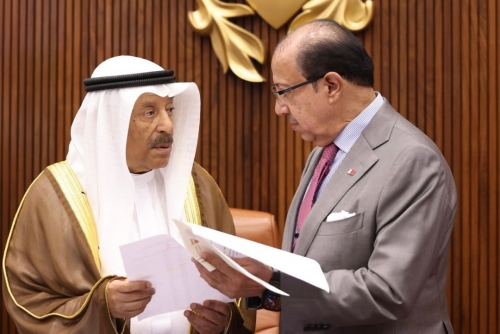Shura Council to vote on state budget today
TDT | Manama
Email: mail@newsofbahrain.com
The Shura Council is due to hold a special sitting today to vote on Bahrain’s state budget for the years 2025 to 2026.
The proposed budget sets spending at BD8.9 billion against an expected income of BD6.4 billion, leaving a BD2.5 billion shortfall driven in large part by debt servicing costs.
Interest payments are projected to consume nearly a quarter of the government’s total outgoings over the two-year period, according to figures set out in the draft law.
The decision to hold the vote today is notable, as the Council’s regular sittings are held on Sundays.
The budget was passed by Parliament on Tuesday following a five-hour debate and now moves to the upper chamber for final review.
Referral to legislature for approval follows multiple rounds of discussions between government and lawmakers between October and March.
Shura’s Financial and Economic Affairs Committee met yesterday to examine the contents of the draft.
The review covered expenditure on day-to-day operations and development projects, projected revenue, and comparisons with previous budget cycles.
The committee also looked at government support schemes and considered remarks raised during joint sessions with the lower house and representatives from the executive.
Draft bill
The Legislative and Legal Affairs Committee, had earlier studied the draft bill and confirmed it posed no constitutional or legal concerns.
It was then handed over to the finance committee for further examination.
A separate proposal, submitted alongside the budget, would amend Decree-Law No. (15) of 1977 on the issuance of development bonds.
The change would raise the ceiling on public borrowing from BD18 billion to BD22.5 billion.
Increased limit
According to the Ministry of Finance and National Economy, the increased limit is necessary to allow the state to raise funds to meet budget requirements, cover existing obligations, and fund programmes already approved in law.
The ministry stated that delays in passing the measure could hinder the country’s ability to meet its financial needs over the coming period.
Borrowing is expected to take place through financial institutions as well as regional and Islamic funds.
Related Posts

